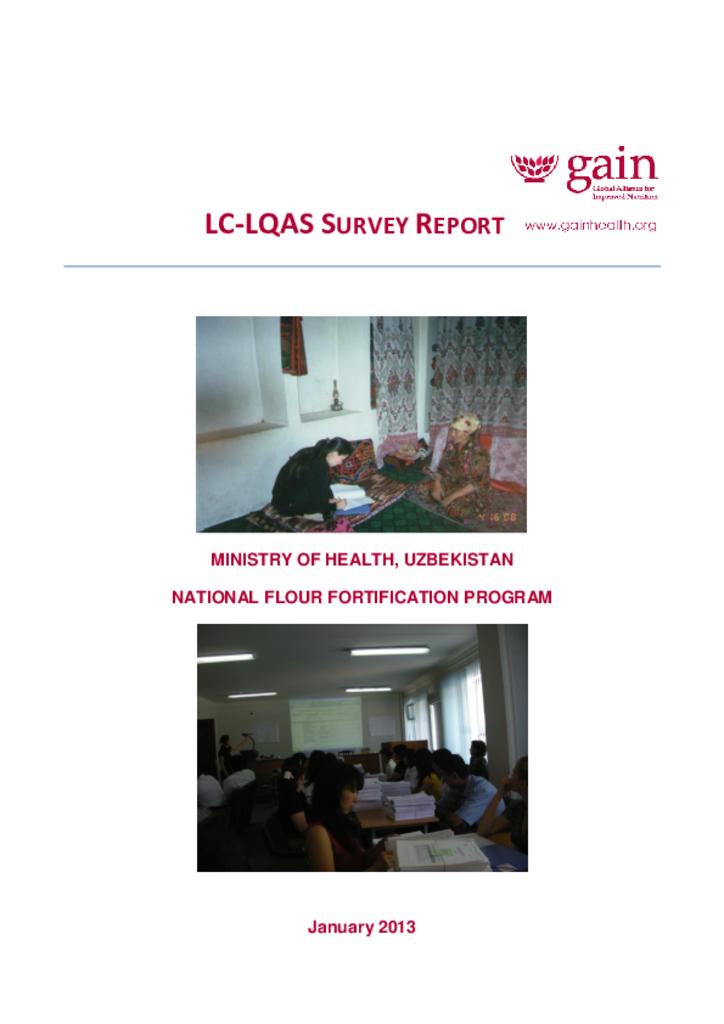In 2003, the Ministry of Health of Uzbekistan received a grant from the Global Alliance for Improved Nutrition (GAIN) for the implementation of a national flour fortification programme (NFFP) to enrich local first grade flour with iron, folic acid, zinc, niacin, vitamins B1 (thiamine) and B2 (riboflavin). The objective of the programme was to reduce anaemia among women of reproductive age (WRA) to 48% within five years of the project start date.
This report presents the findings of a Large Country-Lot Quality Assurance Sampling (LC-LQAS) survey that was conducted to evaluate the current coverage and impact of the NFFP after five years of implementation of the NFFP. The LC-LQAS method was used to design a sample that was representative nationally and within the programme catchment areas. The selected sample included 2,584 WRA from 136 supervision areas (i.e. rayons, cities, and towns). Data were collected on availability and consumption of fortified flour and knowledge of iron deficiency and anaemia. Additionally, flour samples were taken from households for testing of added iron and blood samples were taken from WRA to assess the status of key micronutrients.
The survey found that the fortification of wheat flour with a variety of micronutrients, including iron and folic acid, coincided with a substantial decline in the prevalence of anaemia in WRA in Uzbekistan. However, there is insufficient evidence to directly associate the change to the fortification programme. Despite the high availability of fortifiable wheat flour at the household level, only 42% of households had wheat flour with the expected level of iron. The NFFP should be strengthened to improve quality of the fortified flour and continue improvements in anaemia reduction.
